Some mechanics are polarizing by nature. Mention social deduction, and half the table lights up while the rest groan like they’ve been tricked into joining an improv class.
Word games, boss battlers, take-that—everyone has their personal “nope” pile.
For us, it’s auction and bidding games. We love the tension, psychology, and strategic nuance in theory… but more often than not, we walk away frustrated, burnt by a mechanic that feels less like a strategy and more like a trap.
The Trauma of the Bid
And it’s not just us. Bidding seems to trigger some deep-seated economic trauma in many players. It’s the kind of mechanic that elicits a visceral “ugh;” a twitchy flashback to the time you overbid by 3 bucks and watched your game crash and burn. We get it.
There’s something inherently nerve-wracking about valuing something that might not be valuable. Auctions demand confidence, foresight, and a solid poker face. And if you’re new? Good luck. You might torch your economy in round one or whiff on a key opportunity, and worse, you won’t even know if it was the wrong call until three turns later.
When One Mistake Snowballs
Since bidding revolves around finite resources, one misstep can snowball. Some games are so unforgiving that one overzealous bid can turn into a one-way ticket to irrelevance. You might as well pack it up and go solo in the corner with a roll-and-write.
When done well, bidding thrives on bluffing, reading the room, and second-guessing your opponents. That social meta can be juicy. But if you’re not careful, veterans will sniff out your motives and weaponize them. Worse still, it’s the kind of mechanic that invites table talk sabotage, spite bids, and “just because” power plays.
The Pacing Problem
The pacing can also be brutal. Auctions can absolutely grind a game to a halt. Players spiral into analysis paralysis, trying to assign value to every card, every move. In turn-based systems, this downtime often bloats playtime far beyond the fun.
Then there’s the emotional toll. Bidding is confrontation disguised as commerce. You’re not just outmaneuvering opponents, you’re actively denying them things they want. That kind of cutthroat energy can feel stressful, uncomfortable…or just plain mean.
So yeah. We’re wary.
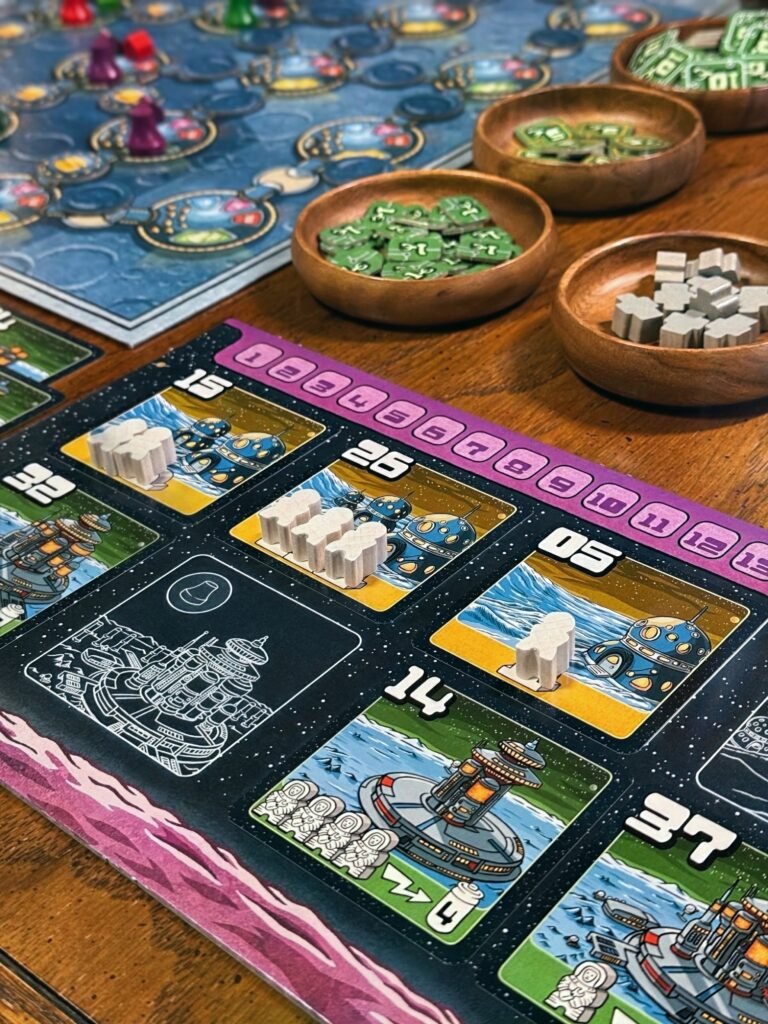
How Power Grid Gets It Right
And yet, Power Grid pulled us in. We approach auction games with extreme caution, but sometimes a game pulls it off. It turns the harsh, high-stakes world of auctions into something more… welcoming?
Power Grid’s auction system is smartly contained: players aren’t involved in every bid, tension deflates quickly, and bidding ends once someone wins, no circling sharks driving up the price just to spite you.
It curbs the worst instincts of auction play. You lost a bid? Great, your pool of options refreshes immediately, and maybe the new card suits you even better.
The system is competitive without being cruel, structured without feeling sterile. You’re bidding for what you need, not just to ruin someone else’s day. That intent matters.
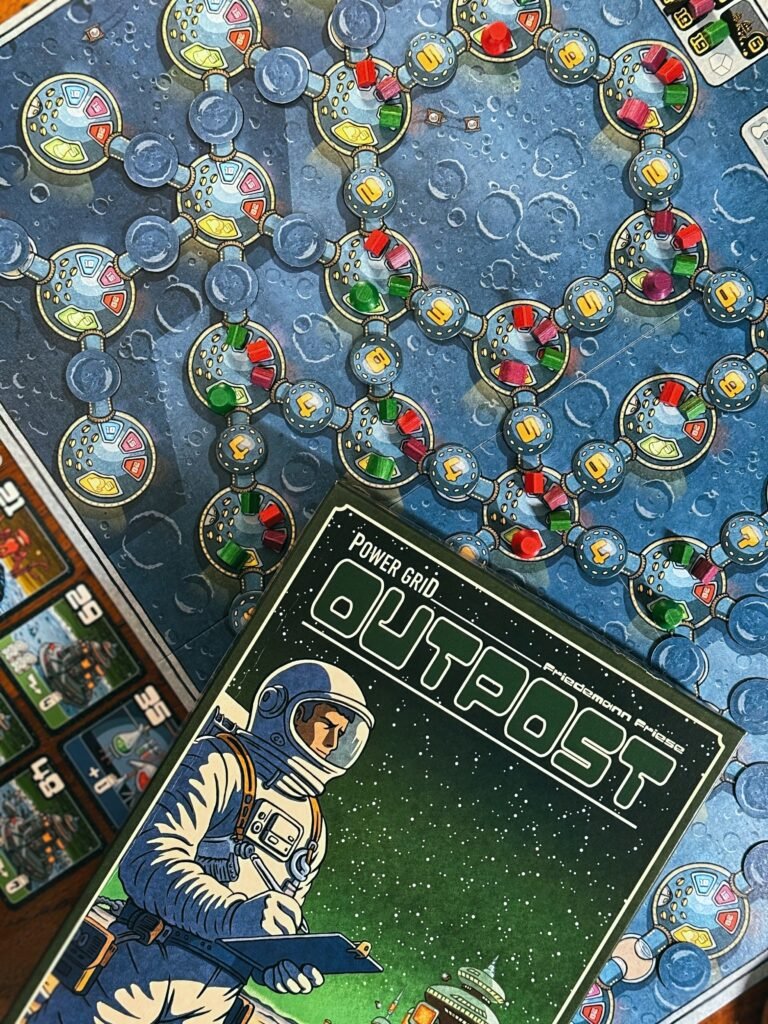
Outpost Lands on the Table
But as we noted in our previous review, Power Grid is also deeply mathy and mentally taxing. It’s rewarding, sure, but it’ll leave your brain feeling like overcooked spaghetti.
So when Power Grid: Outpost landed on our table, we cleared the afternoon, bracing ourselves for two hours of relentless calculations and hopefully just a touch of lighthearted bidding.
To our surprise, Outpost kept the core gameplay intact: bid on power plants, buy “fuel,” build your network, but introduced a much more approachable flow.
It still has depth and tension, but it also lets you breathe. Auctions are meaningful, but not make-or-break. Lose one? Pivot. Recover. Re-strategize. The flexibility here is refreshing and makes the whole system feel far less punishing.
The Strategic Softening
Strategically, the auctions support pacing. You can bow out of bidding entirely, hoard your cash, and wait to pounce later when something juicier drops. Even better, the game includes a clever rule that discounts cards over time, encouraging patience instead of panic-buying.
New Cards
What really elevates Outpost, though, are its three card types:
- Power Plants (your bread and butter)
- Technologies (rule-breaking upgrades)
- Shelters (which bring more workers and fuel automation)
Each one offers distinct, easy-to-grok benefits, and their clarity boosts confidence when bidding. You’re not stuck squinting at a market and wondering if you’re about to nuke your strategy over a dud.
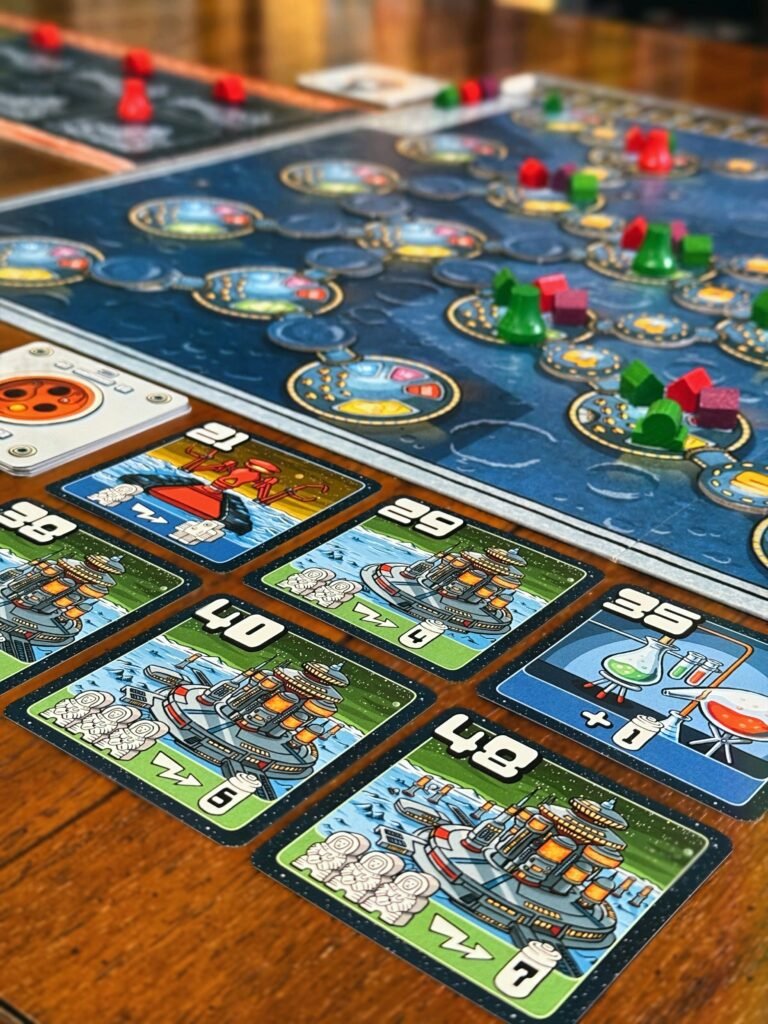
And while other variants might use shelters, we really liked how they’re implemented here. There’s something satisfying about playing the long game—investing in infrastructure, gradually boxing out opponents, and waiting for the perfect moment to surge ahead with tech discounts and efficient builds.
Someone Loosened the Tension
Perhaps most critically, Outpost diffuses conflict. In the base game, experienced players often drive up prices just to mess with others. In Outpost? With three market card types and hidden intentions, it’s hard to know what someone might be eyeing. There’s less incentive to bump bids just to be a jerk. It’s all a bit more opaque, a bit more patient.
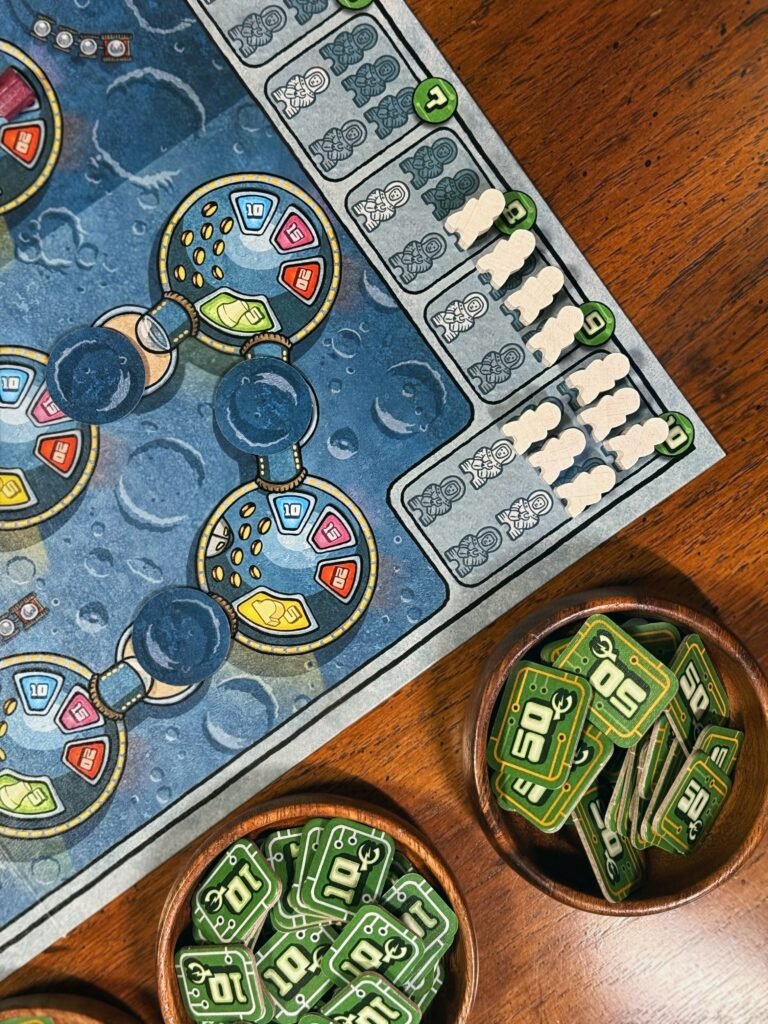
One Fuel To Rule Them All
And economically, it’s gentler. Gone are the days of juggling coal, oil, uranium, and trash. Instead, it’s just workers.
Better still, workers can be permanently purchased. Fewer variables, less mid-game recalculating.
This streamlining makes the game more approachable, especially for newer players, while still offering space for clever optimization. Now, everyone can stay focused on building a good engine rather than surviving a budgeting simulator.
Final Thoughts
It’s still Power Grid, but simpler. Friendlier. More welcoming. Less punishing. The math is still there, but it’s riding shotgun instead of driving the whole game. It reminded us why we like this system in the first place.
If you’ve ever been curious about Power Grid but intimidated by its brain-burning economics, this is the perfect on-ramp.
It’s still Power Grid. But breezier. Bluer.
And featuring some very questionable bubble-letter typography.
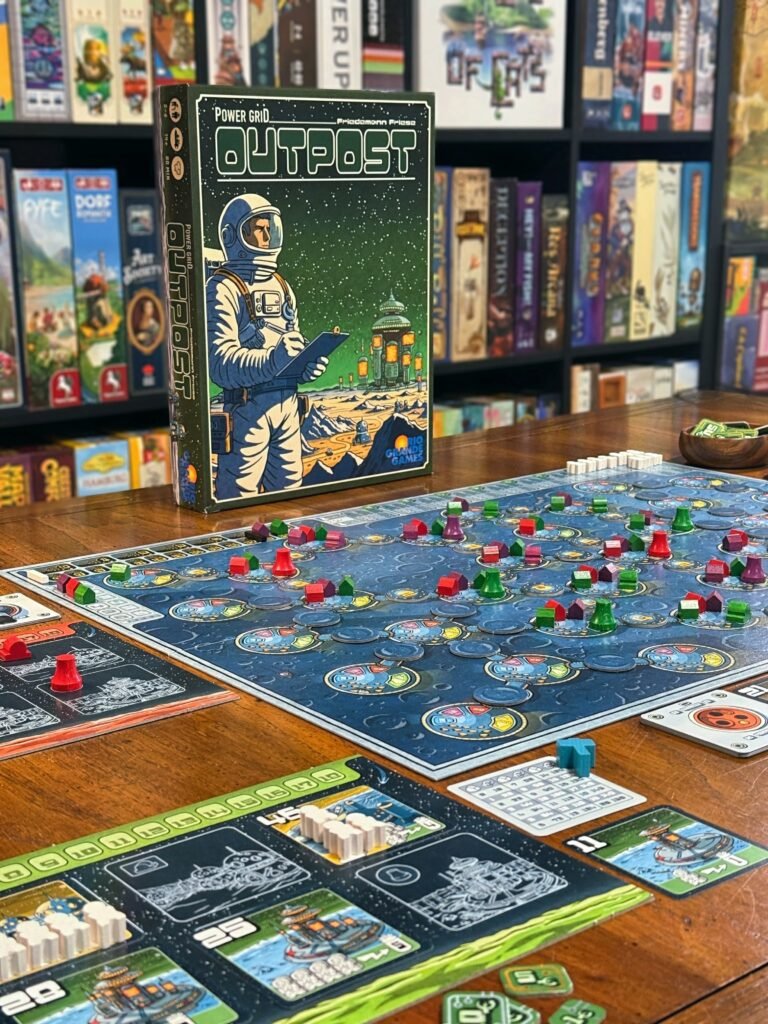
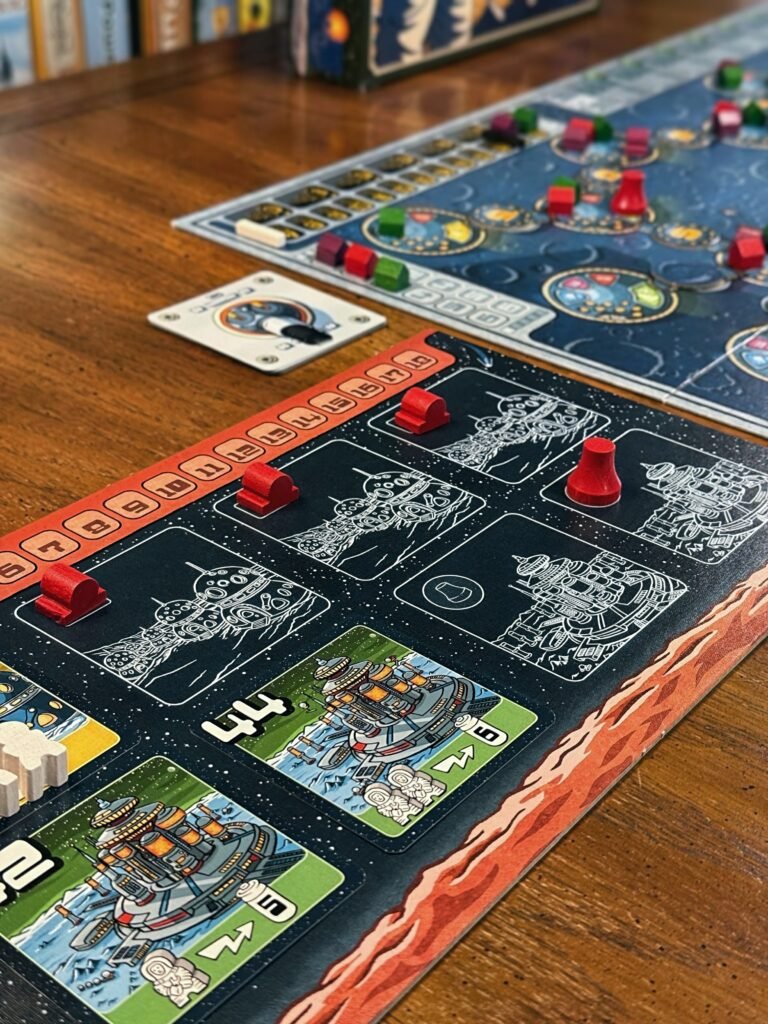
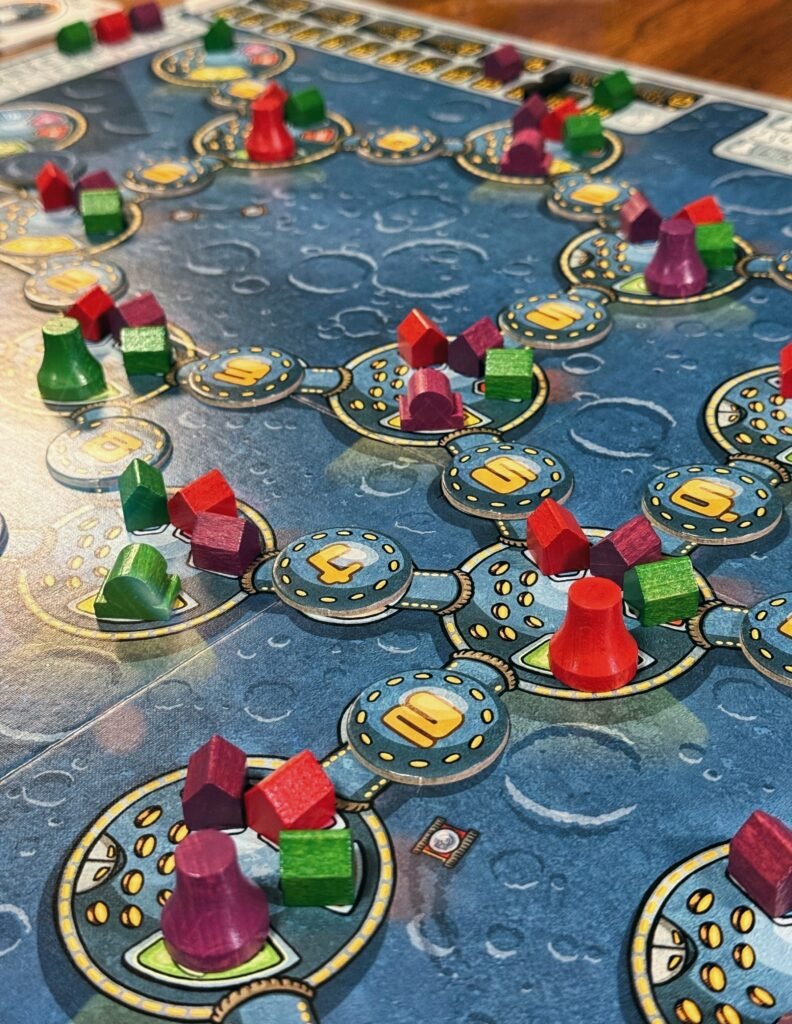
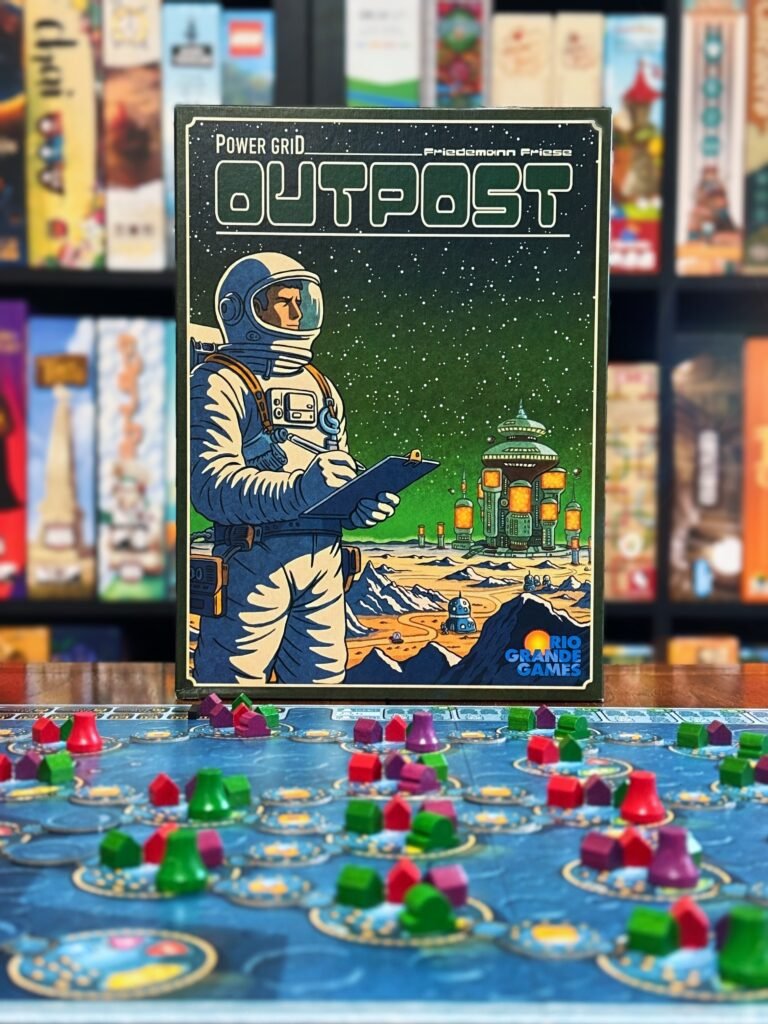
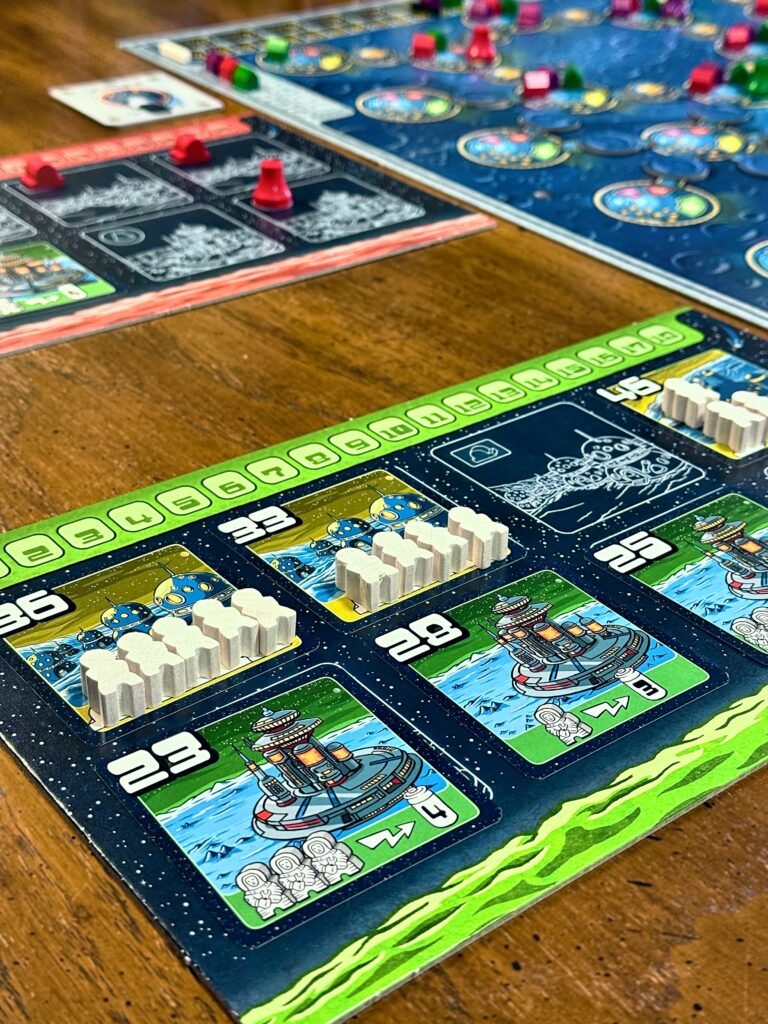
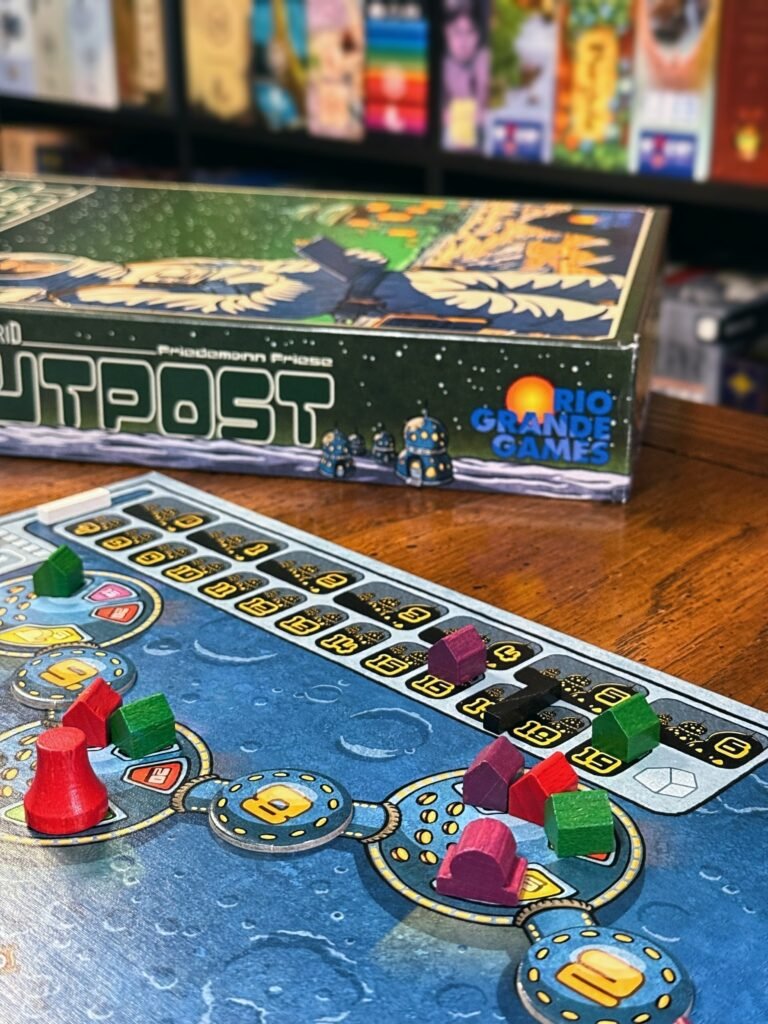
Corinna’s Rating: 7.7
Duncan’s Rating: 8.6
A copy of this game was generously provided by Rio Grande Games for content creation.

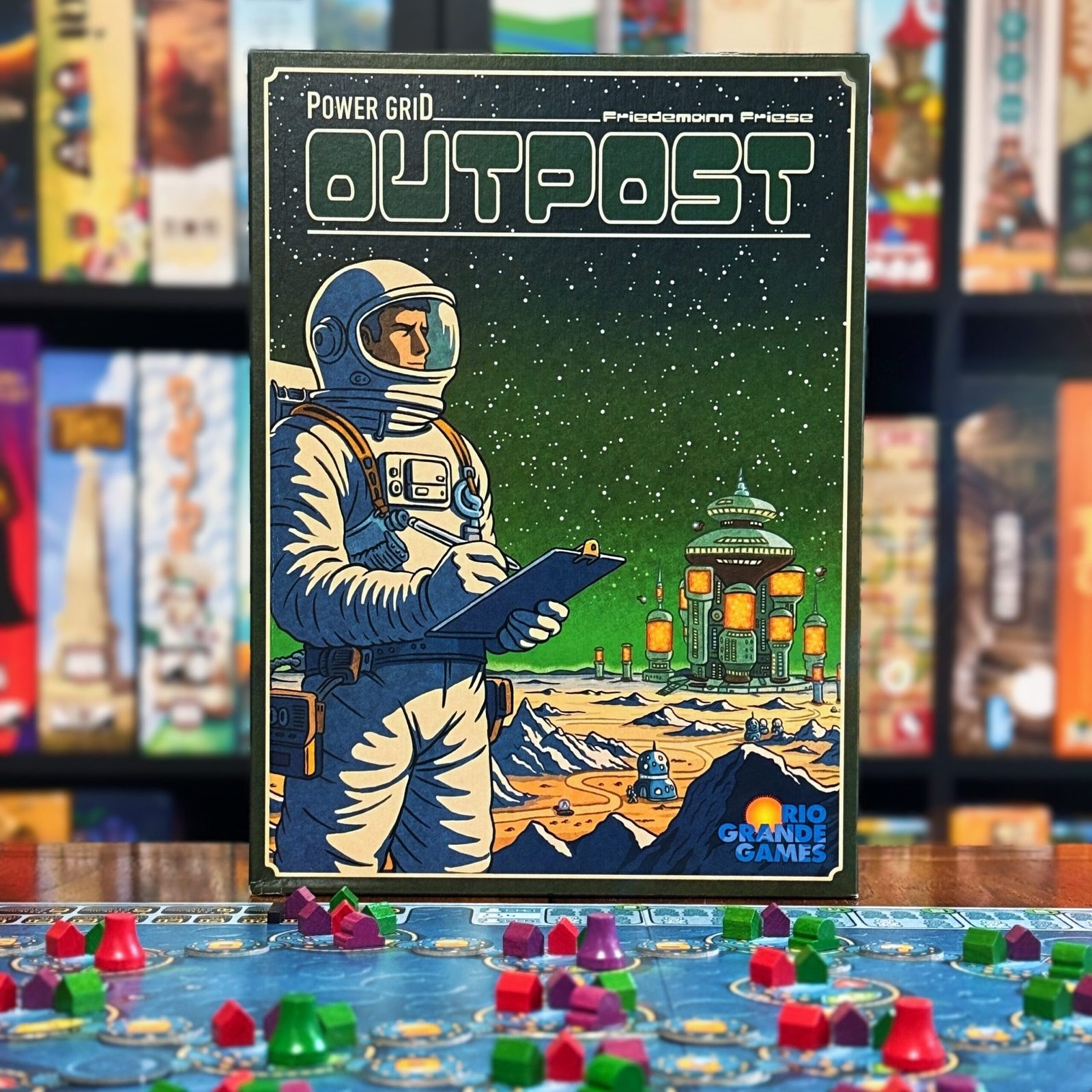
Leave a Reply